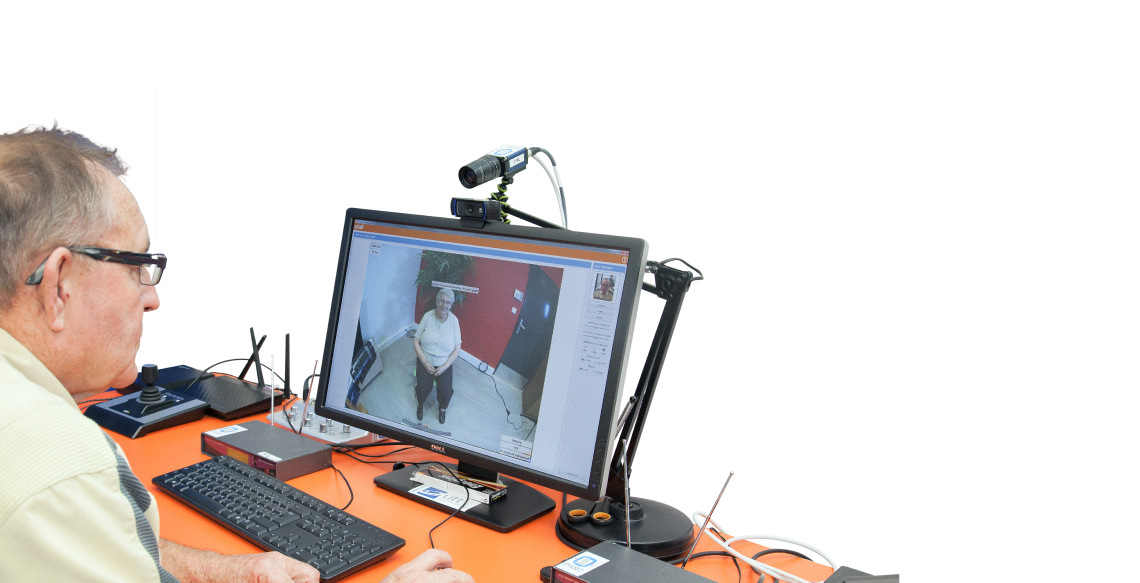TERESA Project – telepresence robots for the elderly
Posted: 11th November 2015
Associate Professor Shimon Whiteson has recently joined the department. Shimon is heading up a research project that takes robotics in an unexpected direction, helping housebound elderly people to continue social interaction remotely.
The TERESA project aims to develop a telepresence robot of unprecedented social intelligence - helping to pave the way for the deployment of robots in settings that require substantial human interaction. In telepresence systems, a human controller remotely interacts with people by guiding a remotely located robot, allowing the controller to be more physically present than with standard teleconferencing. So, for example a person with mobility issues, unable to attend a social event in person will be able to remotely control a robot that could move around the room, allowing the controller to participate in conversations and feel less isolated. TERESA robots will semi-autonomously navigate among groups, maintaining face-to-face contact during conversations, and displaying appropriate body-pose behaviour.
The new telepresence system being developed by project researchers frees the controller from low-level decisions regarding navigation and body pose in social settings. Instead, TERESA will have the social intelligence to perform these functions automatically. This means that the controller does not have to be someone with advanced computer operation skills - making the technology accessible to a wider range of people.
The project will generate new insights into socially normative robot behavior, and will also produce new algorithms for interpreting social behavior, navigating in human-inhabited environments, and controlling body poses in a socially intelligent way.
Testing has already taken place at homes for the elderly and the project will culminate in the deployment of TERESA in an elderly day centre.
In a recent interview (Business Insider UK, October 2015) Shimon explained his vision of human-robot interaction,
‘I really think in the future we are all going to be cyborgs […People] have a tendency to think, there's us and then there's computers. Maybe the computers will be our friends and maybe they'll be our enemies, but we'll be separate from them. But I think that's not true at all, I think the human and the computer are really, really quickly becoming one tightly coupled cognitive unit.’
Read more about the project here: http://teresaproject.eu

